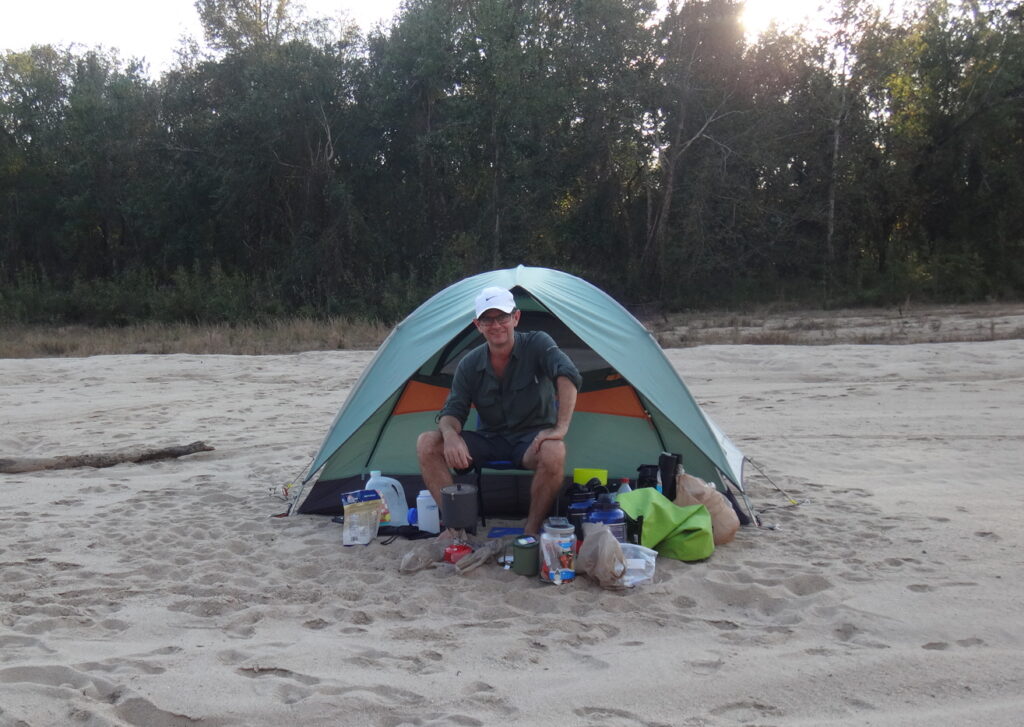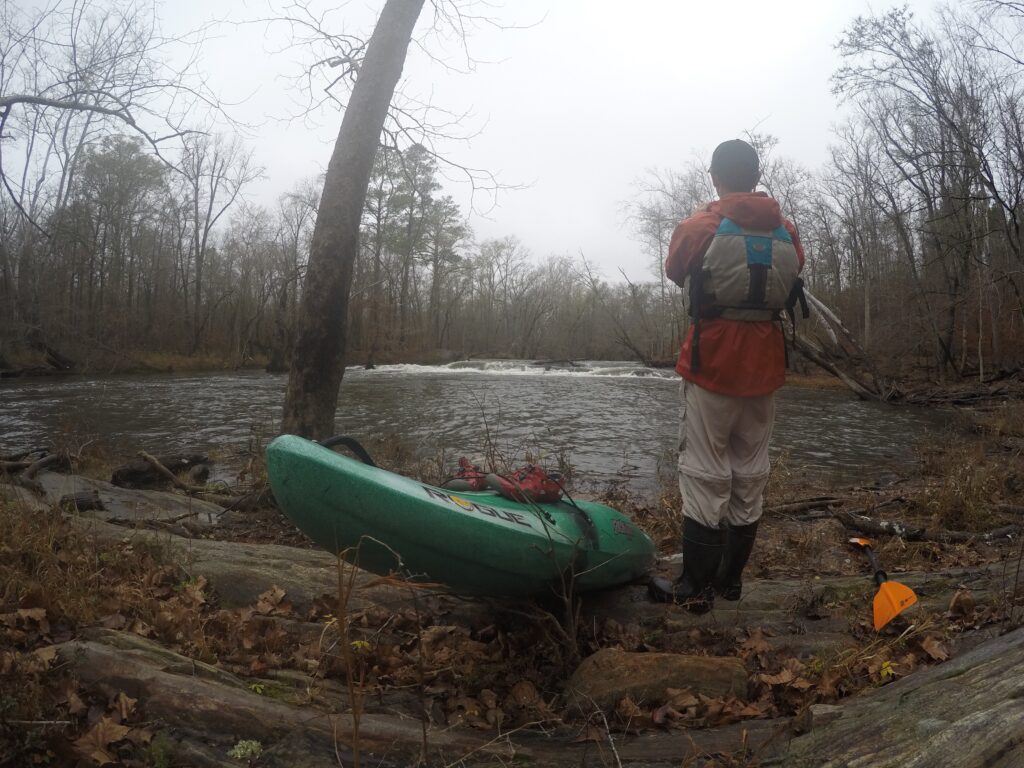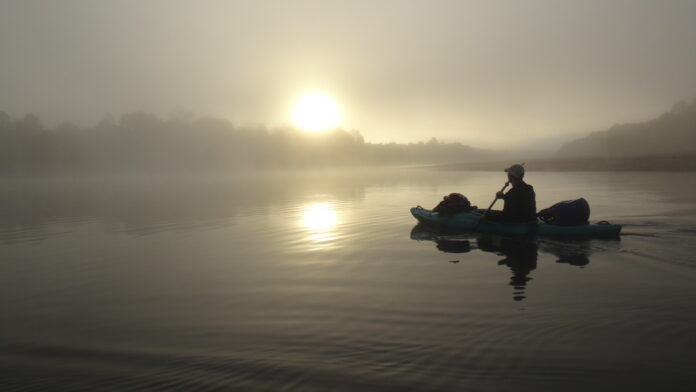As Dr. Gordon Johnston paddled down the Ocmulgee River, fictional characters began to take shape and evolve in his mind. Their stories, with twists and turns as varied as the 225-mile stretch of water, can now be found within the pages of the Mercer creative writing professor’s latest book.
Seven Islands of the Ocmulgee: River Stories, published earlier this year by Mercer University Press and Georgia Humanities, features seven short stories inspired by Dr. Johnston’s kayak and canoe journeys along the Ocmulgee and its tributaries.
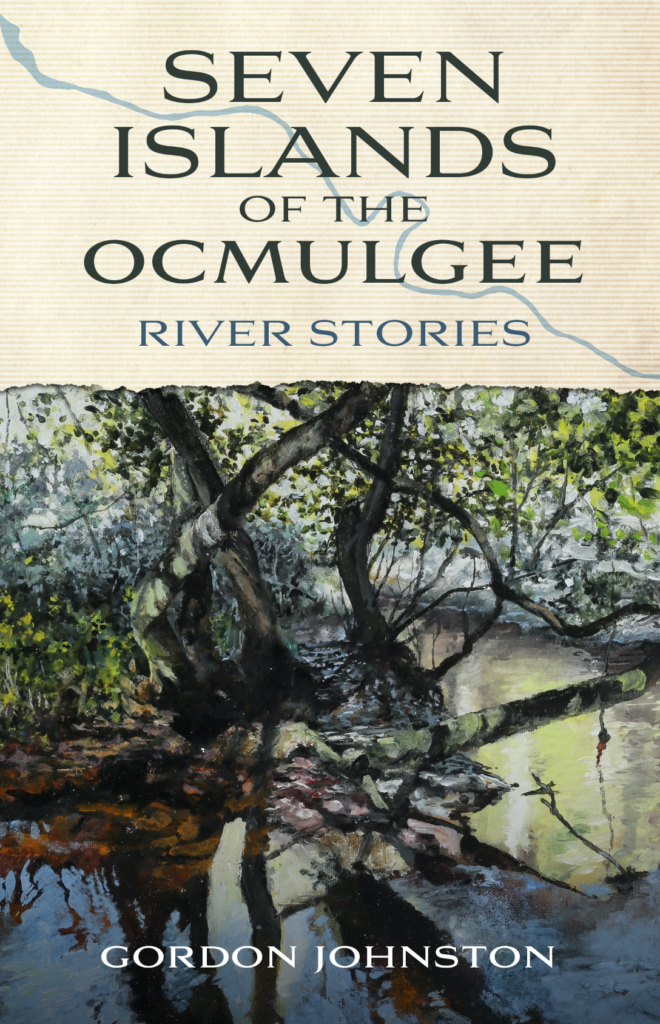
An avid kayaker and canoe-camper, Dr. Johnston has paddled all over Georgia and parts of Florida, including on the Flint, Oconee, Altamaha, Etowah, Nottely, Suwanee and Amicalola rivers. He’s spent the most time on the Ocmulgee River and has followed it all the way to the coast.
“I started paddling the Ocmulgee River systematically to complete it around 2008. As I paddled, I wrote about the river, but I mostly wrote about it in an experiential way. Then, the stories started to form around 2011-2012, when fictional characters and events grew out of the real-life riverscape,” he said.
The stories take place from the 1810s to present day, and each is set in a different location along the river, including Pittman’s Ferry, the Seven Islands, Smith Shoals, the levee in Macon, and the Ocmulgee Mounds of the Mississippian people. The book includes tales of an older man seeking redemption through baptism on the river; a woman who comes to terms with her father’s death and their difficult relationship as she kayaks challenging whitewater rapids; and an orphaned boy on a journey to self-discovery through the study of the Muscogee culture.
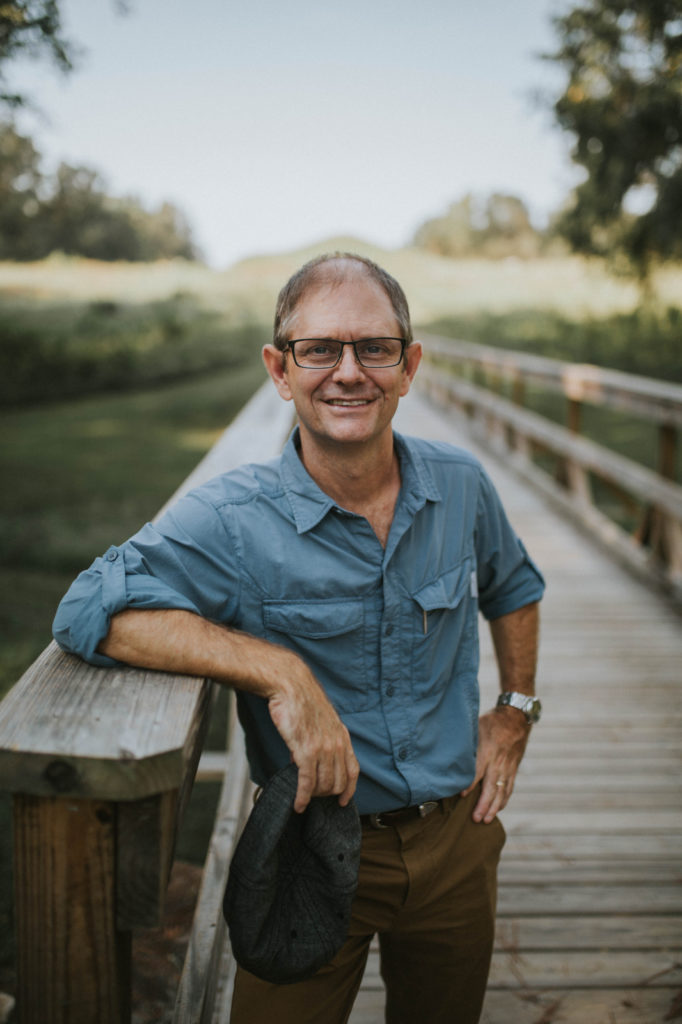
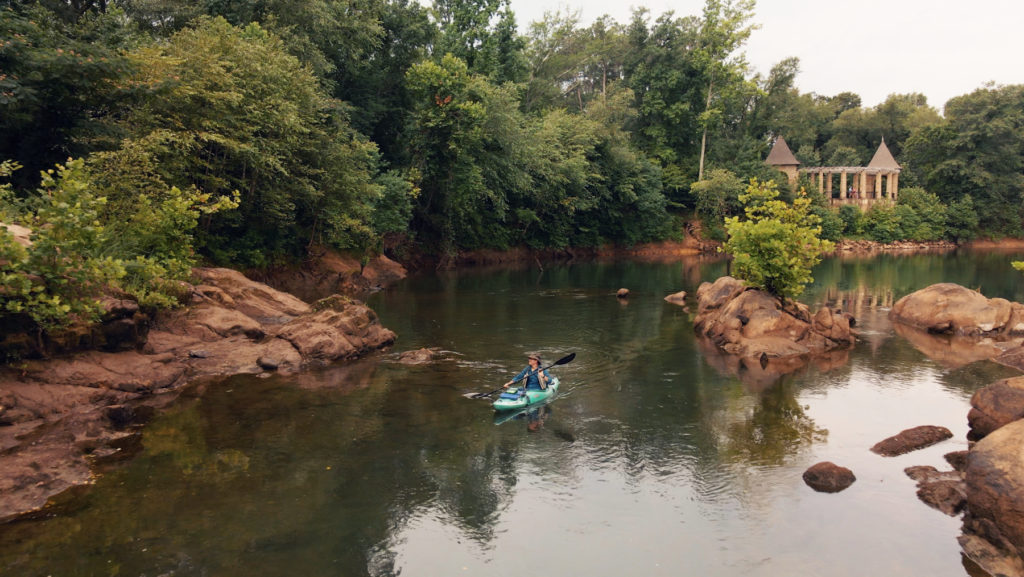
“The book is mostly focused on working people, people who live close to the river, people who are making their way in the world,” Dr. Johnston said. “There’s a sense in which the river imparts a wisdom to them that they’re receptive to. The characters really took on their own voices. When I was working on the book, it really felt like I was transcribing instead of making it up. I felt like the river was carrying me into those stories.”
The stories share a common theme of restoration, which Dr. Johnston said he didn’t realize until he finished the collection. The characters seek out the river and find themselves changed by it in some way.
Dr. Johnston’s source materials for his stories included books and paddler’s guides about the Ocmulgee River, accounts of Spanish explorer Hernando de Soto’s Ocmulgee expedition in the 1500s, and stories from people he met on the river. He also incorporated some of his research from Ocmulgee National Monument: A Brief History with Field Notes, which he co-authored with Matthew Jennings. Dr. Johnston said he had traveled the river so much that the descriptions about the various sections came easily.
He also found inspiration in the artwork of his longtime friend and paddling partner, Eric O’Dell, a Mercer art professor. O’Dell and Dr. Johnston used to have studios in the same building, and O’Dell was working on a river painting at the same time that Dr. Johnston was working on the first stories for this book. Dr. Johnston said his friend’s piece helped motivate his writing, and O’Dell graciously allowed him to use it as the cover of his new book.
The release of Seven Islands of the Ocmulgee couldn’t have come at a better time, with Macon celebrating its 200th anniversary this year and the movement for the Ocmulgee Mounds National Historical Park to become Georgia’s first national park.
“What the book tries to do is offer these different moments of human history and tie them into different settings of the river. The river is the reason we’re here. I wanted to create these stories to give an idea of how long that river has nourished and supported life here,” Dr. Johnston said.
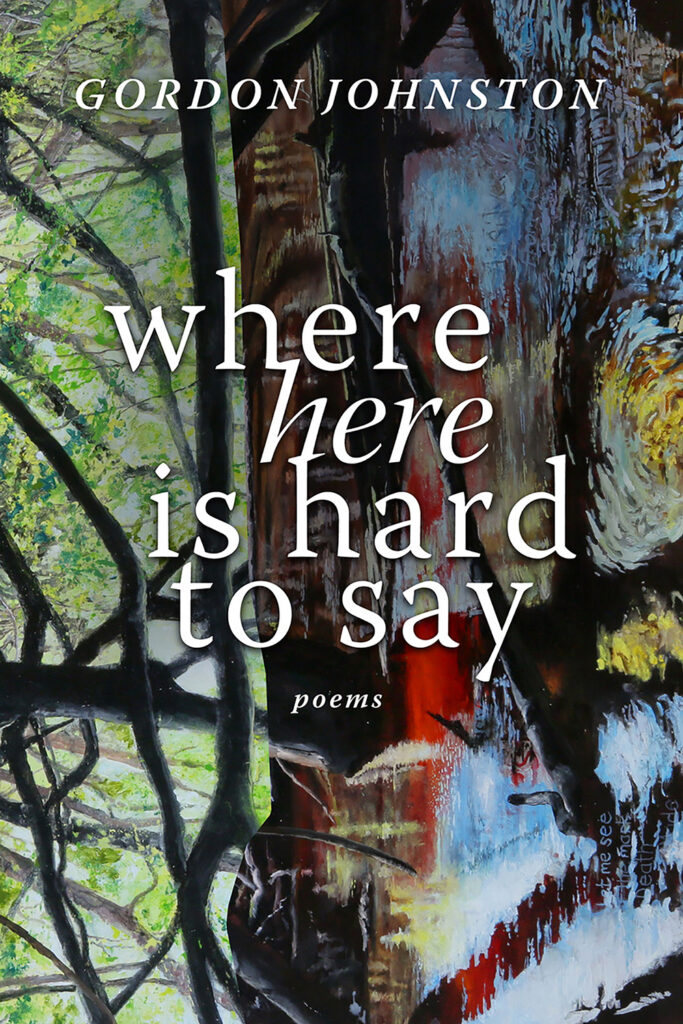
“I hope that as people read it that they get a greater sense of the longer history of the place they’re connected to. I hope the stories trigger them to go down and actually look at the river and dip a toe in it.”
Dr. Johnston is also the author of poetry collection Scaring the Bears and poetry chapbooks Durable Goods and Gravity’s Light Grip. His sixth book, a full-length poetry collection, is due to come out in October. Titled Where Here is Hard to Say, it also contains themes inspired by his river journeys and features another painting by O’Dell on its cover.
“The title is a reference to how difficult it is on the river ever to be still,” he said. “You’re always in flux. Every time you get on a river, it’s a different experience. There’s a continuity to the river, but the substance of it is always different.”
Seven Islands of the Ocmulgee can be purchased online through Mercer University Press, Amazon and Barnes & Noble, or in-store in Macon at Gottwals Books and Barnes & Noble.
